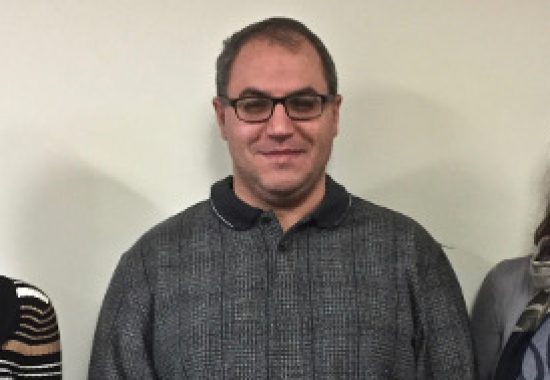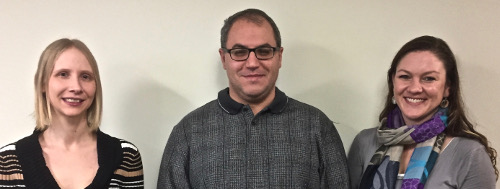Moss Rehabilitation Research Institute post-doctoral fellows and their mentors were awarded an unprecedented three research grants of $35,000 each by the Albert Einstein Society of Einstein Healthcare Network.
Improving word production in patients with language impairments
Julia Schuchard, PhD, and co-investigator Erica Middleton, PhD, received an award for their project titled “The role of retrieval practice in improving word production in aphasia.” Word-finding difficulties are a particularly common problem for people with aphasia, resulting in frequent failures to produce the correct names for familiar objects, actions and people (i.e., naming impairment). This project applies learning principles from psychological research to the treatment of naming impairment in aphasia.
The study tests the hypothesis that retrieving words from long-term memory improves naming abilities by strengthening connections between words and their associated meanings. The results of this work are expected to advance a mechanistic explanation for the benefits of word retrieval practice, which in turn can be used to help guide treatment decisions for individual patients based on their naming behavior.
Using the brain’s representation of the body to improve motor weakness
A study titled “Exploring the benefits of joint action for post-stroke motor deficits” was awarded to Tamer Soliman, PhD, and co-investigators Steven Jax, PhD, Shailesh Kantak, PhD, PT, and Laurel Buxbaum, PsyD. Prior work of Dr. Soliman demonstrated that shared manual action (such as when two individuals engage together in a sawing task) may improve motor learning. The Albert Einstein Society project explores harnessing this effect to promote functional recovery of arm movement in post stroke arm weakness.
Patients will initially co-act together with an experimenter in shared manual tasks. This is hypothesized to induce strong coupling between the mental representation of the weak arm and the perceived experimenter arm movement. Exploiting this coupling by engaging the weak arm in imitation of the experimenter’s arm is then expected to promote better functional recovery of the patient’s arm.
Understanding the sources of language impairment following stroke
Denise Y. Harvey, PhD, and co-investigator Erica Middleton received an award for their project titled “Cognitive control impairments in aphasia”. The ability to communicate depends largely on successful word retrieval, which is a pervasive problem for patients with aphasia. This research draws from cognitive neuroscience findings suggesting that, in some cases, brain regions affected in aphasia play a more general role in cognitive control, a process that allows humans to flexibly switch between different thoughts and actions.
The project will test whether damage to brain regions implicated in cognitive control affects the ability to retrieve words and their meanings. The findings from this research will provide insight into the source(s) of language impairments in aphasia, which has the potential to inform the development of novel behavioral interventions, such as those that minimize cognitive control demands and/or enhance cognitive control abilities.
The Albert Einstein Society harnesses the power of Einstein Healthcare Network employees and physicians to solve some of today’s most exciting healthcare challenges.



4,456 comment on “MRRI Post-Doctoral Fellows Obtain Three Einstein Grant Awards”